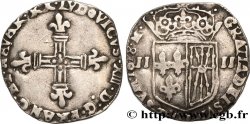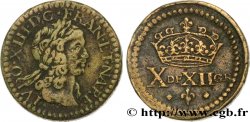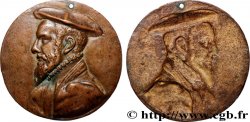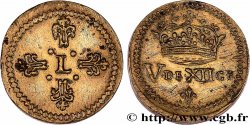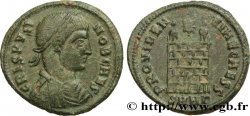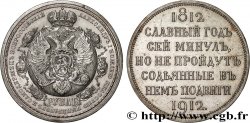Live auction - fme_941268 - LOUIS XIII Médaille, François de Bonne, duc de Lesdiguières et connétable de France
You must signin and be an approved bidder to bid, LOGIN TO BID. Accounts are subject to approval and the approval process takes place within 48 hours. Do not wait until the day a sale closes to register. Clicking on "BID" constitutes acceptance of the terms of use of cgb.fr private live auctions.
Bids must be placed in whole Euro amounts only. The sale will start closing at the time stated on the item description; any bids received at the site after the closing time will not be executed. Transmission times may vary and bids could be rejected if you wait until the last second. For further information check the Live auction FAQ
All winning bids are subject to a 18% buyer’s fee.
All winning bids are subject to a 18% buyer’s fee.
| Estimate : | 120 € |
| Price : | 295 € |
| Maximum bid : | 400 € |
| End of the sale : | 20 August 2024 16:29:57 |
| bidders : | 5 bidders |
Type : Médaille, François de Bonne, duc de Lesdiguières et connétable de France
Date: 1623
Metal : bronze
Diameter : 48,50 mm
Orientation dies : 12 h.
Engraver DUPRÉ Guillaume (1576-1643)
Weight : 35,61 g.
Edge : lisse
Puncheon : sans poinçon
Coments on the condition:
Patine hétérogène avec des taches noires d’oxydation. Présence de traces d’usure, avec quelques coups et rayures
Catalogue references :
Obverse
Obverse legend : FRAN. A BONA D. DESDIGVIERES P. ET COMESTABILIS - 1623.
Obverse description : Buste cuirassé et drapé du Duc avec un col fraisé, tournée vers la droite, décoré de la croix de l’ordre du saint Esprit.
Reverse
Reverse legend : GRADIENDO RO - BORE FLORET.
Reverse description : Blason de Lesdiguières entouré du collier du Saint-Esprit et de l’ordre de Saint Michel, surmonté par une couronne ducale.
Reverse translation : Il s'épanouit avec une force qui doit grandir.
Commentary
Petit noble dauphinois, François de Bonne (Saint-Bonnet, 1543 - Valence, 1626) accomplit une carrière hors norme. Il devient en effet Connétable de France, c'est-à-dire chef de toutes les armées françaises, et façonne un visage nouveau à la province du Dauphiné et à sa capitale, Grenoble..








 Report a mistake
Report a mistake Print the page
Print the page Share my selection
Share my selection Ask a question
Ask a question Consign / sell
Consign / sell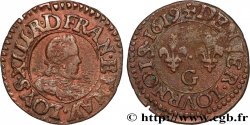
 Full data
Full data